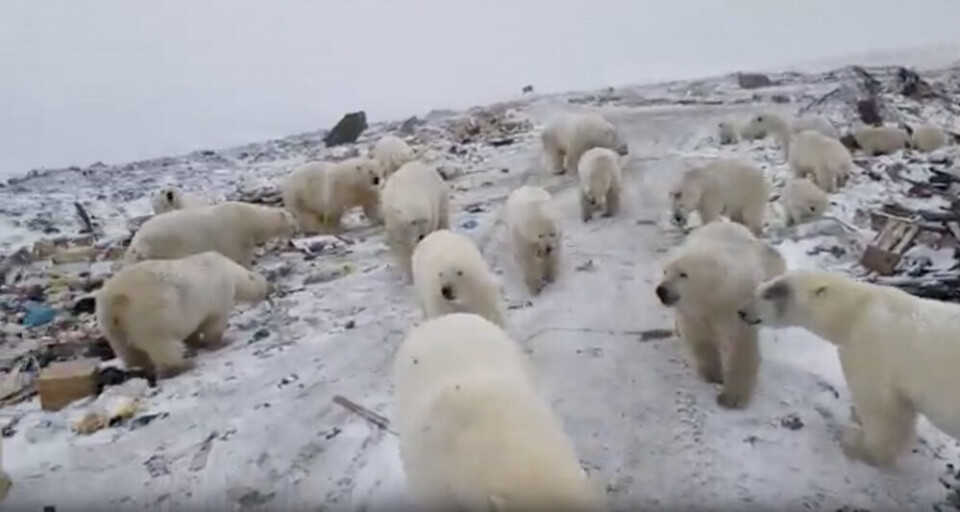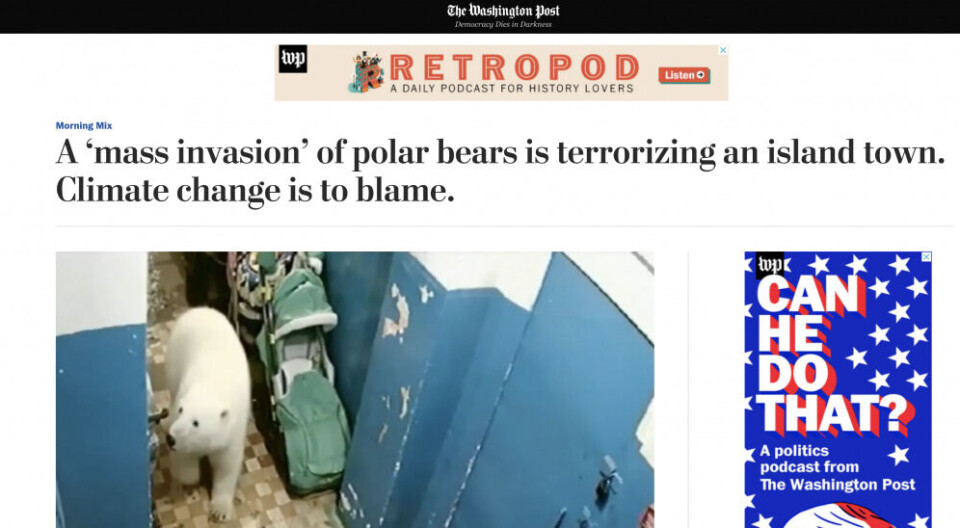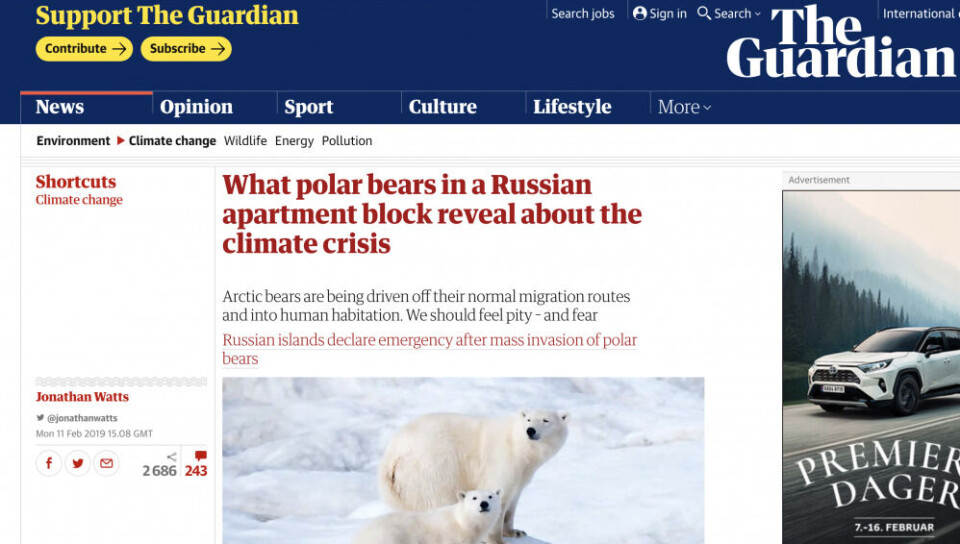
Well-fed polar bears are not necessarily stuck at Novaya Zemlya due to climate change, experts say
Photos and videos of the more than fifty polar bears walking around the houses in Belushaya Guba have gone viral in world-wide media arguing climate change is to blame.
p.p1 {margin: 0.0px 0.0px 0.0px 0.0px; font: 11.0px Helvetica; color: #000000; -webkit-text-stroke: #000000}p.p2 {margin: 0.0px 0.0px 0.0px 0.0px; font: 11.0px Helvetica; color: #000000; -webkit-text-stroke: #000000; min-height: 13.0px}span.s1 {font-kerning: none}
This story could very well be headlined: «When internet came to Novaya Zemlya».
Locals started to post photos and video of the more than 50 polar bears in their neighborhood. Over the last week, social media as well as online newspapers globally have gone mad over the news coming out from one of the remotest towns on the planet, the closed military settlement of Belushaya Guba.
Regional authorities have declared a state of emergency after the bears no longer react to noice- and light signals from guards trying to scare them off.
Belushaya Guba, like the entire Novaya Zemlya, is closed off military area. The newly upgraded air base Rogachevo is just a few kilometers outside of town.
p.p1 {margin: 0.0px 0.0px 0.0px 0.0px; font: 11.0px Helvetica; color: #000000; -webkit-text-stroke: #000000}p.p2 {margin: 0.0px 0.0px 0.0px 0.0px; font: 11.0px Helvetica; color: #000000; -webkit-text-stroke: #000000; min-height: 13.0px}span.s1 {font-kerning: none}
But why don’t the bears want to leave the settlement? As previously reported by the Barents Observer, the Kara Sea off the east coast of Novaya Zemlya is this winter packed with very close drift ice.
Now, it appears like the human food-waste has a much more central role in the story than just the warming Arctic.
But first a look at the many media, including the Barents Observer, that last week jumped to conclusions pointing at climate changes when the stories about polar bears in trouble, or making trouble, found its way to global newsrooms.
The blog portal Polar Bear Science has collected links to many of the newspapers reporting about the sensational images from Novaya Zemlya.


The Guardian writes «What polar bears in a Russian apartment block reveal about the climate crisis.» The Washington Post writes under the headline «A ‘mass invasion’ of polar bears is terrorizing an island town. Climate change is to blame» and CBC makes a similar conclusion headlining its article «Russian Arctic town overrun by polar bears, climate change blamed.»
p.p1 {margin: 0.0px 0.0px 0.0px 0.0px; font: 11.0px Helvetica; color: #000000; -webkit-text-stroke: #000000}p.p2 {margin: 0.0px 0.0px 0.0px 0.0px; font: 11.0px Helvetica; color: #000000; -webkit-text-stroke: #000000; min-height: 13.0px}span.s1 {font-kerning: none}
Mats Forsberg has sailed expeditions since 1982 and has assisted in TV productions about the polar bears in the Arctic. He has first hand knowledge on polar bears’ behavior.
«These bears are well-fed,» he says to the Barents Observer after reviewing some of the videos.
«I would say these bears are not hanging around the houses due to climate changes. They have huge amount of food dumped into nature by humans,» Forsberg says and concludes: «This is purely a on-site human made problem.»
Some of the videos posted by local residents on Vkontakte show how tens of polar bears are eating garbage at the local dump site in Belushaya Guba. The bears actually look fat.
Evaluating media’s reporting, the blog site Polar Bear Science concludes. «Global warming is blamed for the problem but as is so often the case, that claim does not stand up to scrutiny.»
The blog is run by Susan Crockford, a zoologist with more than 35 years experience, including published work on the Holocene history of Arctic animals.
… We hope you like reading our articles about the Arctic.
Support independent, nonprofit journalism. For 15 years, the Barents Observer has provided serious, fact-based journalism and stories from inside the Arctic Circle. Please help us continue to be a voice for press freedom uo north in the borderland to Russia. Get engaged and give a small donation.
















